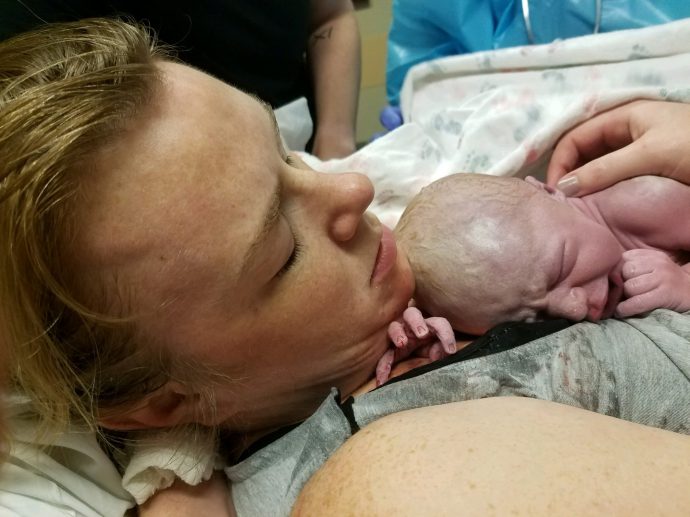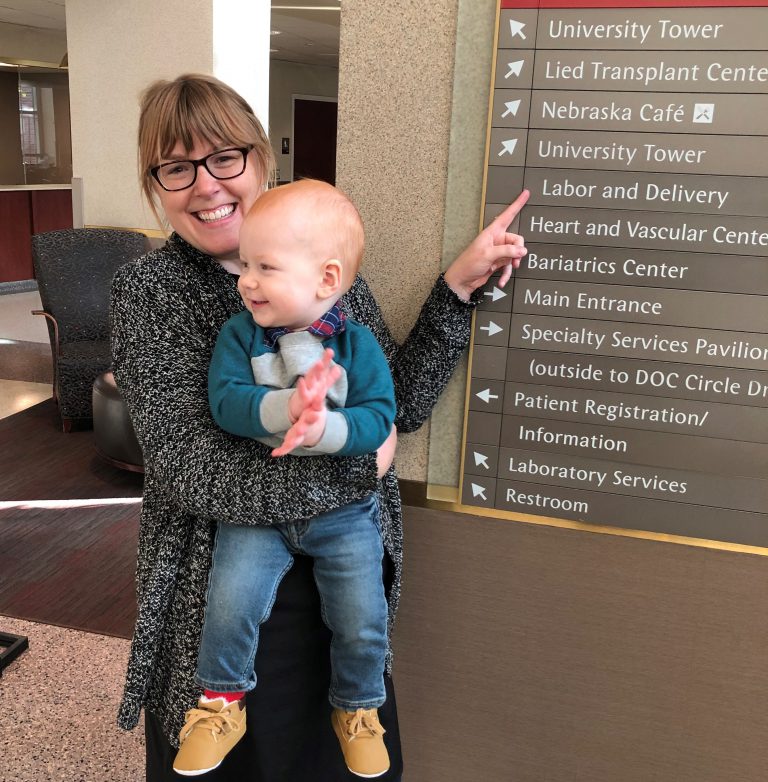
When Katelyn Cherney learned she was pregnant with her first child, she put a lot of thought into choosing who would help her during her journey.
“I’ve always been a bit uneasy in hospitals and doctor’s offices,” she says.
She had, of course, heard of midwives, but wasn’t sure if it would be the right fit.
“I had a misconception that only women who believed in alternative medicine, or women intent on having an unmedicated birth, used midwives. I thought I was too conventional to consider a midwife,” Cherney says.
But after talking with friends who had used midwives, she became more open to the idea.
“As I read more about the midwife model of care, I was attracted to the notion of pregnancy and birth being treated less like clinical, medical procedures and more like the normal function of my body.”
At the Olson Center for Women’s Health, Cherney worked with all five midwives during her monthly visits.
“I looked forward to every appointment,” she says. “The midwives are personable and friendly. Each one is a good listener and cheerleader.”
Since this was Cherney’s first pregnancy, she didn’t know how midwife care differs from traditional OB-GYN care.
“While both OB-GYNs and nurse midwives offer family planning, prenatal care, delivery and postpartum care, and well-woman care, midwives offer a low intervention, personalized, and supportive approach that empowers each woman to be involved in her own care,” says Calida Gardner, nurse midwife lead. “During pregnancy, midwives care for women who are low risk, spending extra time during appointments and labor to listen, educate and reassure women throughout their childbearing journey.”
When the time came for her baby, Hugo, to arrive (at 40 weeks and two days), Cherney labored at home.
“The midwives encouraged me to stay home because I would be more comfortable there than in the hospital,” she says. “Because hospitals have historically made me nervous, it was my goal to stay home as long as possible. They said they did not want to see me until I was ‘really grumpy.’ I didn’t want to be one of those first-time moms who arrived at the hospital too soon, only to be sent home.”
Since most of her labor was in her back, Cherney says she leaned against a counter and swayed side-to-side to cope. She also practiced mindfulness and spoke to her doula on the phone.
“I found that being in motion and using mindfulness – focusing on the calm, pain-free breaks between contractions and reassuring myself that I was safe – helped me cope with my labor at home.”
When she arrived at Nebraska Medical Center, she was 9 centimeters dilated.
“I arrived at 6 a.m. and Hugo arrived an hour later,” she says. “April Nelson (one of the midwives) barely had time to change into scrubs before catching Hugo!”
Hugo weighed 8 pounds, 3 ounces, which happens to be the exact weight Cherney predicted.
He’s now 14 months old and Cherney describes him as busy, curious and funny, and ready for a sibling.
“I can’t wait to do this again,” she says. “My midwife team provided nurturing care, encouragement and sincere interest in my overall well-being. I felt like I was the priority in my appointments and was always reassured that my experience was healthy and normal. I had an incredible experience and I look forward to growing my family in the care of midwives.”
Considering a natural birth?
Call the Olson Center for Women's Health at 402.559.4500 to schedule a meeting with a midwife.



